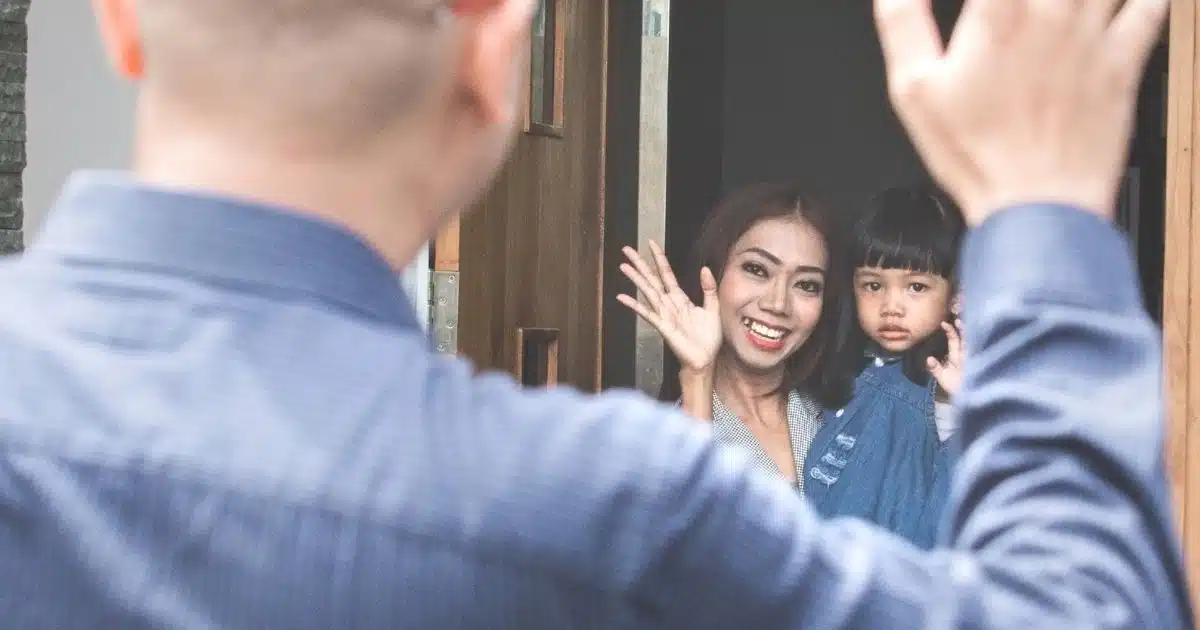Why parallel parenting could be the answer to shared parenting


Navigating the intricate dance of shared care arrangements with an ex-partner can feel like juggling flaming torches while riding a unicycle. Been there, dropped that! But guess what? I stumbled upon a game-changer: parallel parenting.
If you’ve been desperately trying to co-parent with an ex who won’t cooperate or communicate, you’ll know it’s like banging your head against a brick wall – day after day after day. Whatever you do, it’s never gonna work.
Instead, parallel parenting is a shared parenting approach that focuses on minimising direct interaction between you and your ex, while prioritising your children’s well-being. It allows each parent to independently manage their time with the kids, making decisions within their own domains, promoting stability, and reducing conflict.
So, if you’re ready to let go of the tug-of-war drama, parallel parenting could be the answer to your prayers. Keep reading to find out how.
Further reading: Parallel parenting or co-parenting: Finding your best fit.
Reduced conflict
Parallel parenting creates “space.” And that expanse right there in the middle is incredibly helpful in a relationship, especially in an expired one.
When you’re in a toxic situation, as in co-parenting with an old flame who sucks the air out of the room, parallel parenting limits direct contact with your high-conflict ex. And disengagement outside of parenting needs is an effective way to “keep the peace.”
No, I’m not promoting “stonewalling.” My point is communication should be outlined – let’s stick to mandatory engagements, shall we?
Less interaction means less arguing, and more listening, thus creating a more stable environment for both parents and children.
Less stress for you
Slamming the door in your ex’s face is never easy; it comes with a great influx of emotion – bitterness, vengeance, fear, sadness, betrayal and pure vulnerability.
All of these will rock your sanity. And when your headspace is not on track, you can’t take care of anything.
Now, parallel parenting is not gonna magically erase all that. Rather, it will reduce the risk of mental burden – you know, like an ice pack to your swelling bump.
When emotions are at an all-time high, parallel parenting allows you to heal faster by not having to communicate and meet with that ex-partner on a regular basis. As such, you avoid unnecessary drama and have more space and freedom to breathe and contemplate your new life.
Less stress for the kids
The saddest part is, the children always get the short end of the stick.
When parents get into the ring and ask the kids to pick a corner, they create such a traumatising experience for the little ones, affecting their behaviour (no matter what age).
That’s why parallel parenting works because it places the focus back to the kids and takes it further. The children can bond with each parent without being in the centre of a crossfire. They can be cocooned in a conflict free zone.
And this isn’t just random talk, studies have shown that kids who spend 35% of their time with each parent have far better adaptability to such situations. So, despite a high-separation conflict, the children’s relationship with their parents can still evolve.
You can parent your way
It’s hard to co-parent with someone you can’t even have a civil relationship with. Tendency is, you’re gonna keep arguing every time you see each other.
With parallel parenting though, that would have to take the backseat. Each parent can work with their preferred parenting style. Meaning they have a clear line of responsibilities to focus on such as education, values and living situation, and put their time and energy into those key aspects, instead of each other.
The thing is, this approach can be your temporary or even long-term solution. You and your ex will slowly get used to the idea of parenting separately, set aside your differences and close in on the children.
Clearer boundaries
Boundaries are essential for kids as they provide a sense of security, guidance and structure, helping them understand their limits and develop a strong foundation for healthy relationships and responsible behaviour.
You might think that parallel parenting would blur the boundaries. After all, both parents are doing things differently.
For us, this wasn’t the case.
My ex and I have created boundaries within our own homes when we have our kids. Yes, they are different at each house, but that’s OK. Kids can cope with different rules and routines across two homes, so long as they are clear and consistent.
Taking away the stress of trying to control boundaries in another house when you are not there, and instead concentrating on the ones in your home when the kids are there is a huge relief. Instead of swimming against the tide, you’re swimming with it … with flippers on!
The children always come first
Okay, when I say the children come first, this doesn’t mean you’re not gonna address your needs. You have to do what’s right for you, eventually, but only AFTER, you do right for the kids.
Parallel parenting is seeing past who’s right or wrong between the parents. There is no longer a competition. They just work together in raising the kids, period!
As such, no parent will make a big decision without the approval of the other parent. But at the same time, you give freedom to your ex-partner to use their own parenting approach, no comparison whatsoever.
You handle things more maturely and move forward with the ultimate goal of protecting the interests of your kids.
More consistency in the long run
C’mon, the mayhems of the divorce procedure and settlement? No one finds stability in all that. High-conflict situations are just built to wreak havoc no matter how you put it.
Enter parallel parenting.
This shared parenting strategy is putting order back to chaos. How so?
In spite of the different visiting schedules, household routines and rules, settlements, the kids know what to expect and the parents are confident to respond to situations independently. And that encourages emotional stability, not right away, but gradually, as situations like this take time.
With less conflict and friction, both parents can create a structured environment and work harmoniously, yet separately, in the long-term.
Less legal battles, mediation and all that horrible stuff
When parents are always fighting, they can’t make even the simplest of decisions. But it’s hard to have issues with someone you rarely meet and hardly talk to, except when it’s about the kids, the kids and the kids.
That, my friend, is the typical “parallel parenting” scenario, which I would describe as “handling things more maturely.” You interact less and give freedom to your partner. You disengage from your emotional outburst and move on.
By doing so, there’s less conflict and things are much more easily resolved without shouting, pointing fingers, or worse, legal battles. This is beneficial for the children, as they won’t be forced to pick sides.
Parenting is not a contest, it’s a collaboration that will only work if you focus on guiding the kids and forgiving the past.
My final thoughts on parallel parenting
In the whirlwind of navigating shared care arrangements, I’ve found solace and success in the concept of parallel parenting. For this reason, I’m truly grateful for the chance to share my insights and advice with fellow single mothers who might be facing the same challenges.
Remember, parallel parenting isn’t just a technique; it’s a lifeline that empowers us to prioritise our children’s well-being while maintaining our own peace of mind.
Through this journey, I’ve learned that setting clear boundaries, focusing on effective communication, and letting go of the need for control are crucial components of parallel parenting. It’s heartening to witness the positive impact this approach has on both my children and myself.
By working together yet independently, we’ve created a harmonious environment where our kids can thrive, free from the tensions that can arise in traditional co-parenting dynamics.
I want you to know that parallel parenting can be the answer you’ve been searching for. Embrace the opportunity to tailor your shared care arrangement to your unique circumstances, and don’t hesitate to seek support from those who have walked this path before.
The journey might have its challenges, but the rewards in terms of your children’s happiness and your own well-being are immeasurable.
















Leave a comment